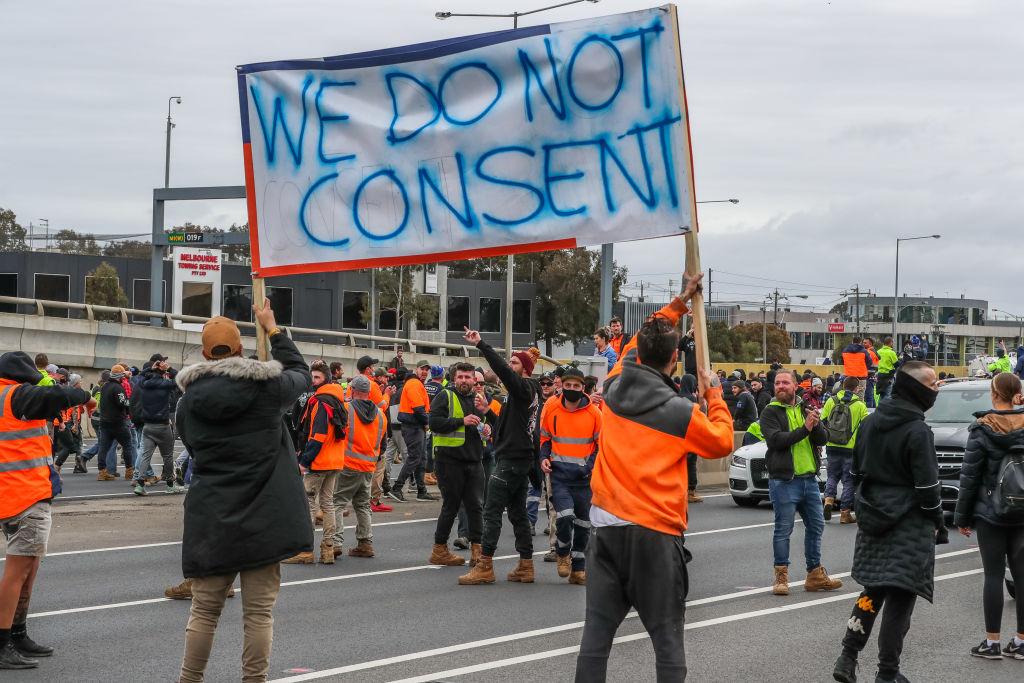Commentary
Demonstrations against COVID-19 restrictions, mandatory vaccination, lockdowns, and border restrictions have occurred in most capital cities of Australia.

Demonstrations against COVID-19 restrictions, mandatory vaccination, lockdowns, and border restrictions have occurred in most capital cities of Australia.